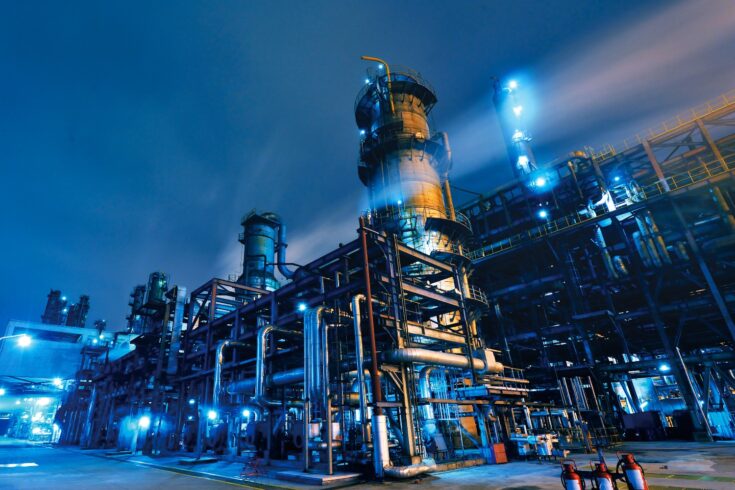Since 2019, the IDC has supported industrial decarbonisation efforts across the UK’s key regional clusters.
Collaboration with industry, funding partners and government has led to:
- the development of six credible cluster plans
- nine advanced deployment projects
- the development of a dedicated research centre
The IDC has overseen 100 research projects, developing multidisciplinary decarbonisation solutions across industries.
Laying the foundations
The IDC, backed by £210 million public funding and matched by £261 million from industry, has catalysed the decarbonisation of the UK’s energy intensive industries.
The challenge provided targeted support to six of the UK’s key industrial clusters:
- Teesside
- Humber
- Scotland
- South Wales
- North West
- the Black Country
The combined influence of private and public funding has led to the successful development and scale up of low-carbon hydrogen and carbon capture and storage (CCS) technologies across the UK.
Collaboration and knowledge sharing between industry experts, academia and government have helped catalyse industrial decarbonisation.
An industrial milestone
Four IDC deployment projects have successfully progressed in the first stage of the government’s cluster sequencing for carbon capture usage and storage deployment.
This process will enable the UK’s vision of capturing 20 to 30 million tonnes of carbon dioxide per year by 2030.
Through the Industrial Decarbonisation Research and Innovation Centre (IDRIC), the IDC has overseen 100 research projects, developing multidisciplinary solutions across industries.
Engaging with research organisations, policymakers and trade associations has allowed research findings to be translated into viable solutions.
Strengthening partnerships is integral to the IDC and has provided a wider breadth of expertise, calling for a greater variety of innovative strategies to be considered.
This has resulted in the creation of feasibility studies that have supported the successful deployment of technologies and processes industry wide.
A look ahead
In celebration of the IDC’s impact, it is important to look to the future of the UK’s industrial decarbonisation.
In just five years, progress has paved the way for continued collaboration across industry, government and academia.
These achievements mean the UK is on track to deliver four low carbon clusters by 2030 and the world’s first net cluster by 2040.
Industrial Decarbonisation Challenge Director, Dr Bryony Livesey, said:
The IDC has exceeded all of its original targets, and over the last four years has developed a successful blueprint for viable decarbonisation plans for heavy and energy-intensive industry.
The UK’s planned investment into industrial-scale CCS, low-carbon hydrogen production, CO2 transportation and secure underground storage has been de-risked through our programme, paving the way for the UK to become a world leader in low-carbon technologies, infrastructure and sustainable growth.
Further information
Discover more about the IDC’s achievements in the Industrial Decarbonisation Challenge: celebrating our impact report.
Watch the IDC animation on YouTube.

